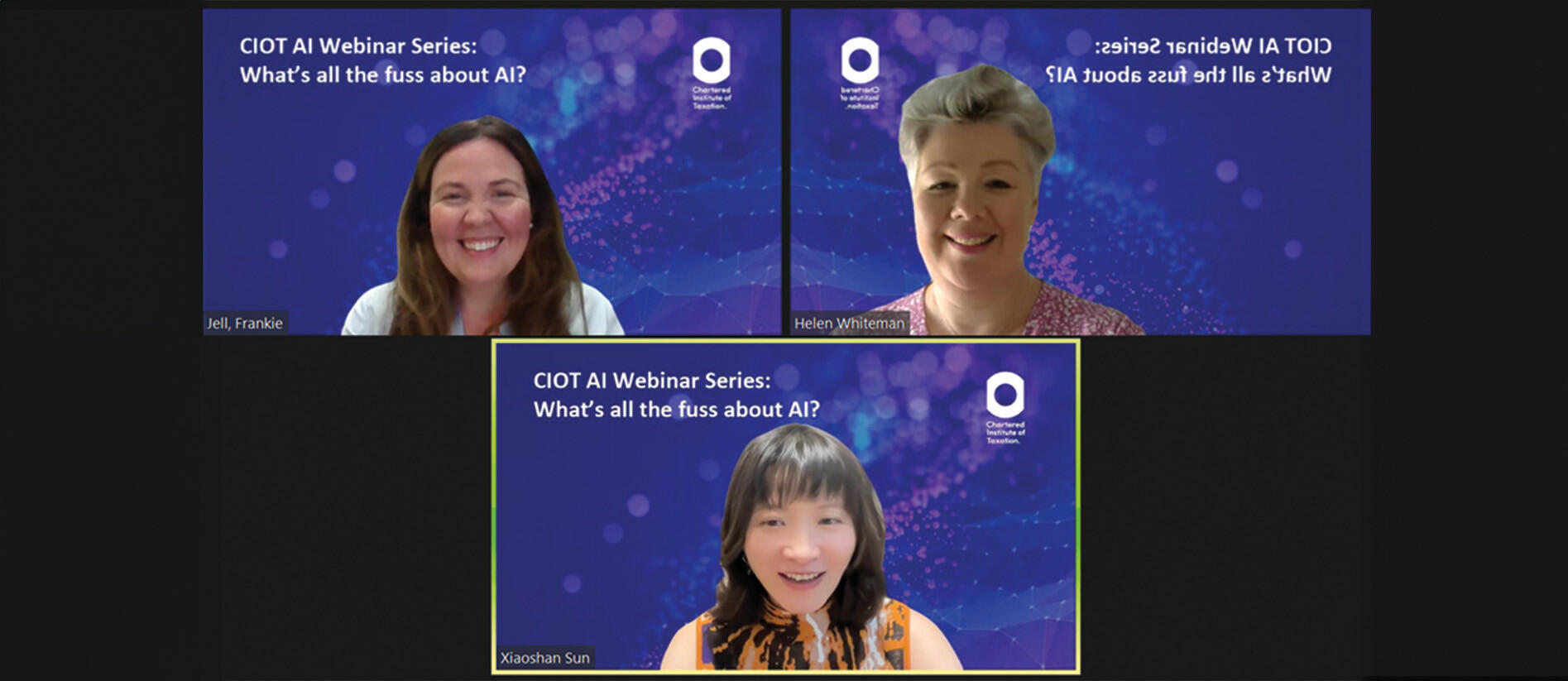AI Webinar Series: What’s all the fuss about AI?

There’s been a lot of noise and distraction about artificial intelligence (AI) lately, particularly when ChatGPT burst onto the scene 18 months ago. But AI and machine learning have been around for decades. So why are we now paying more serious attention as it creeps into the professional services sphere – and moves beyond robotics, Alexa and Terminator movies?
These questions formed the basis of our first member AI webinar in May. I was delighted to welcome two expert panellists – Shan Sun, Tax Technology Lead at Deliveroo, and Frankie Jell, Tax Technology Consulting Partner at Deloitte – in a discussion to help set the scene with a brief potted history of AI and machine learning.
Frankie and Shan helped to explain some of the most commonly used terms and concepts, such as explainability, bias and large language models, with reference to some practical business examples for each. It was great to hear Frankie talk about what’s happening in UK tax firms. Are firms using AI? If so, how and where? And what are the limitations? We noted that members in this webinar – from small, medium and large firms – are embracing AI, but 78% are at the discovery stage.
We covered the status of UK safeguards and potential for regulation, what the opportunities and limitations of AI in tax may be and the relevance and starting places for smaller practices. We highlighted the impact that Generative AI (GenAI) is having, and will continue to have, on the tax profession. Our discussion focused on:
- The most valuable ‘use cases’: Is AI best used for individual productivity (such as writing meeting notes) or for domain specific activities (such as transfer pricing, R&D and permanent establishments, where we see the highest risk).
- Specific ‘use cases’: What is the best technology to meet these? For example, should we use domain specific or generic AI tools, or other techniques, such as RAG? We also considered the issue of obsolescence in the future versus return on investment.
- Culture and governance: How you educate tax professionals, have trustworthy AI in these organisations and approach data security.
- Readiness: The preparedness of data and infrastructure that are necessary to adopt AI.
We had over 900 registrations for this first webinar in our series, with attendees from the Big Six, in-house tax advisers and sole practitioners. We also provided a short ‘takeaway’ document highlighting some of the terms and concepts we covered.
The discussion on AI in tax doesn’t stop here. We continued at the CTA Address on 5 June, where Conrad Young CTA spoke about the impact of AI in tax. You can read more about that on page 53.
Our second AI webinar will be on 17 September, focusing specifically on ethics, followed by a third webinar on 20 November about workforce readiness. Register to attend these webinars at: www.tax.org.uk/ciot-ai-webinar-series. Recordings will be made available to registered members after the webinar.
You will have read about the CIOT Diploma in Tax Technology. This has just relaunched with more AI related content and updates, so I urge you to take a look and consider how this can equip you with new and complementary digital skills in an ever-increasing digital world. For further information, see www.tax.org.uk/ditt. I will keep you up to date with our activities in this area from time to time, and please do follow and engage with me on LinkedIn where I also post on a regular basis.
Helen Whiteman, Chief Executive, CIOT


